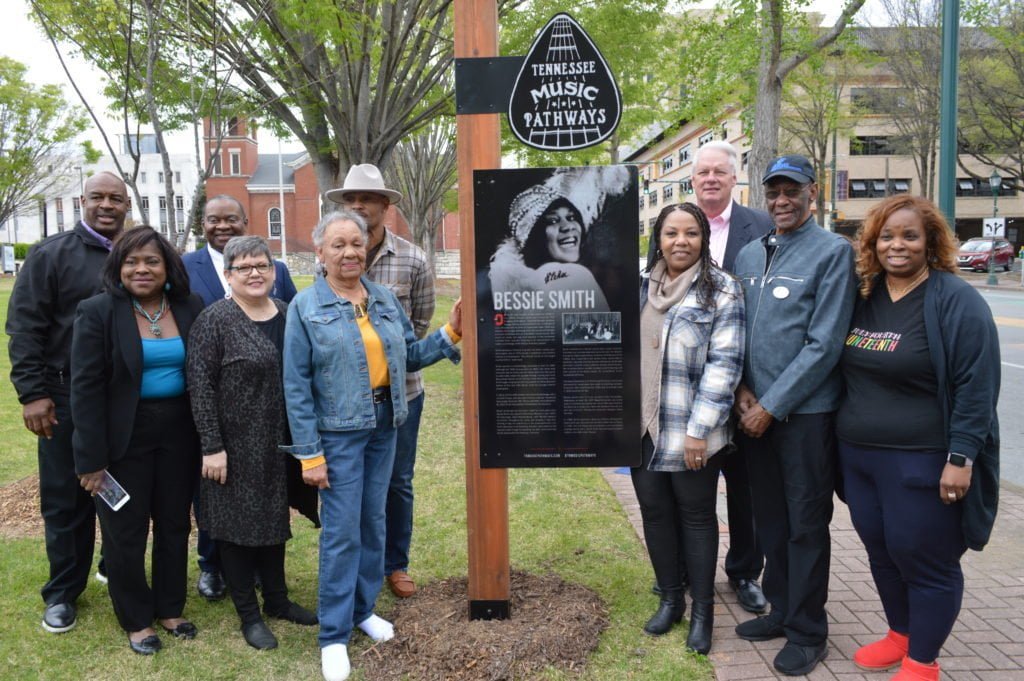By Camm Ashford
Bessie Smith, one of the most popular African American artists of the 1920s, was honored last Friday with the installation of a “Tennessee Music Pathways” marker.
The event took place in the singer’s hometown of Chattanooga on the front lawn of the Bessie Smith Cultural Center, 200 East Martin Luther King Blvd.
Smith’s granddaughter Beverly Clarke and great-grandson Kevin Clarke were on hand to commemorate the occasion.
Smith’s family said her music wasn’t just entertainment. It was personal.
“You can’t sing the blues unless you lived the blues, and she lived the blues,” noted Beverly Clarke. “She had a hard lot in life, hard knocks. Some very hard knocks, but she always got up and continued to fight.”

During the reveal, some state and local leaders who discussed the importance of the commemoration: Hamilton County Mayor Jim Coppinger; Donna Elle Harrison, director of Cultural Tourism and Inclusive Marketing at Chattanooga Tourism Co.; District 28 Rep. Yusuf Hakeem; Dave Jones, East Tennessee Division manager Tennessee Department of Tourist Development; Hugh Morrow, Chattanooga Tourism Co. and city of Chattanooga Chief Equity Officer Tamara Steward.
Bessie Smith (April 15, 1894–Sept. 26, 1937) was the most popular female blues singer during the Jazz Age. Known as the “Empress of the Blues,” she developed a commanding, dramatic vocal presence that saw her become among the highest-paid African American entertainers of the 1920s.
Smith’s music wasn’t just from the 1920s and ‘30s. She influenced jazz, R & B, and even hip-hop in the late ‘80s to mid ‘90s.
Launched by the Tennessee Department of Tourist Development in 2018, Tennessee Music Pathways is an online planning guide that connects visitors to the state’s rich musical heritage at tnmusicpathways.com.
From the largest cities to the smallest communities, Tennessee Music Pathways stretches across all 95 counties and features hundreds of landmarks from the seven genres of music that call Tennessee home–blues, bluegrass, country, gospel, rockabilly, soul and rock ‘n’ roll.

